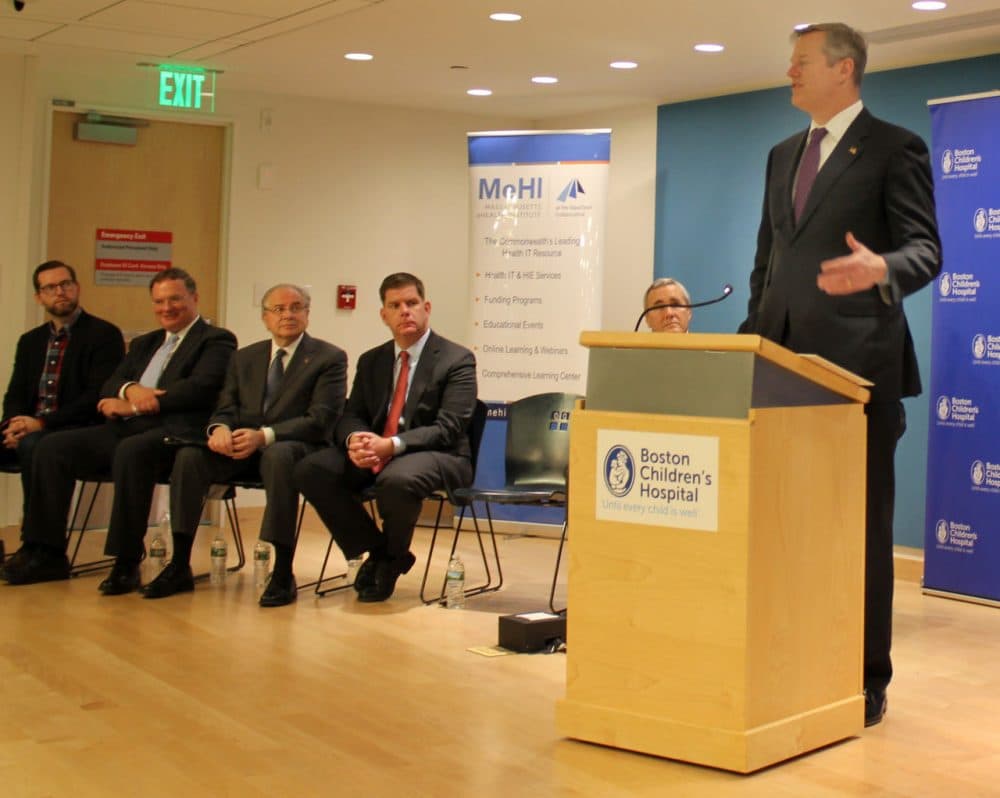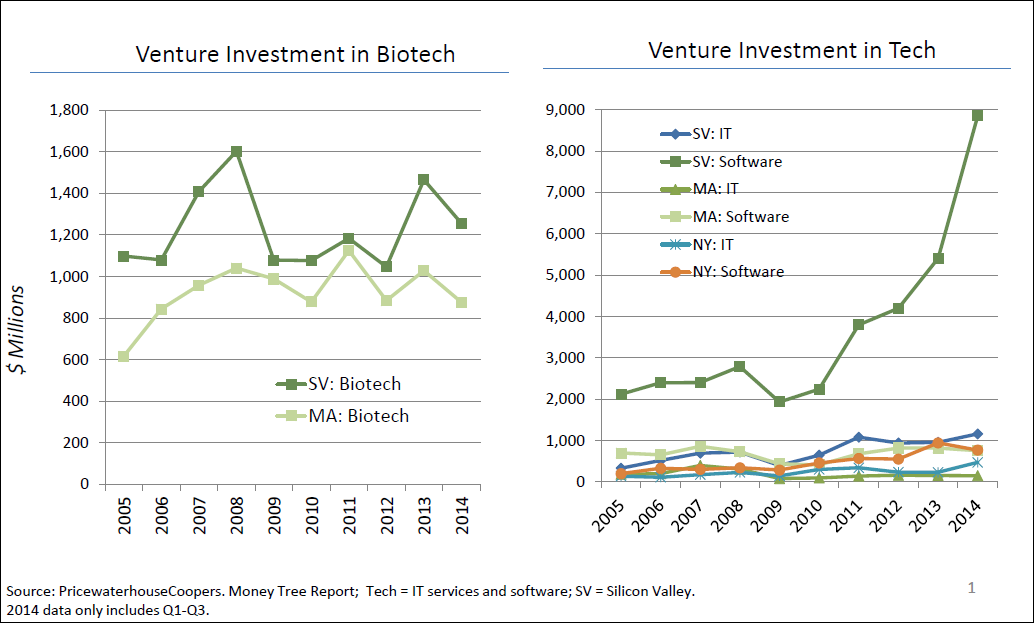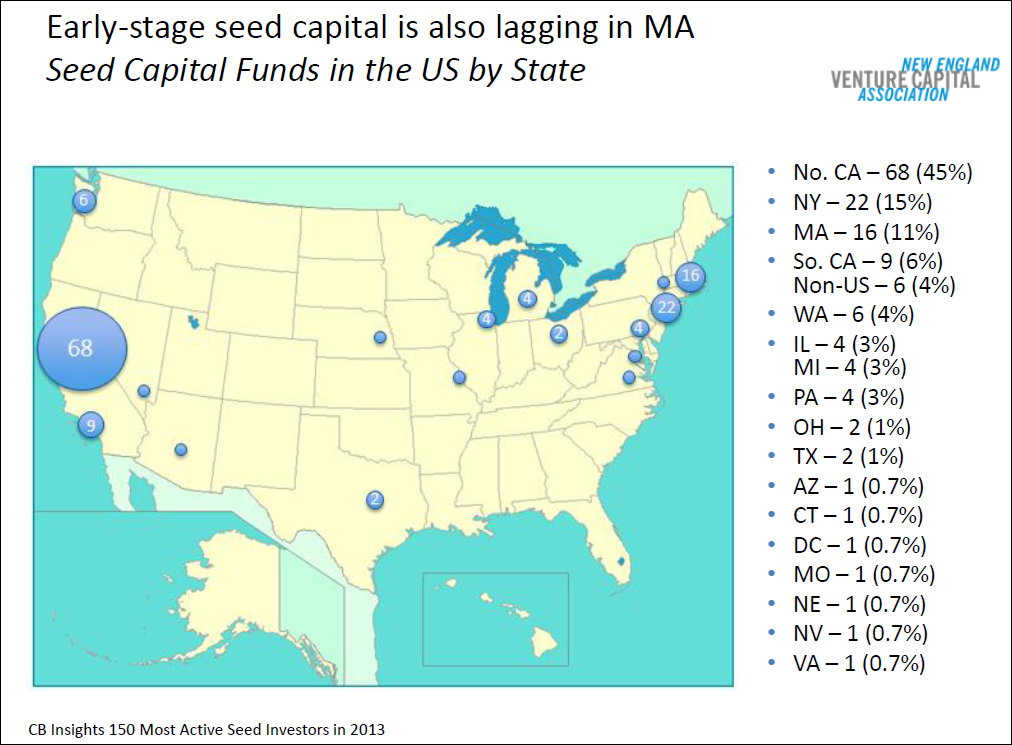Advertisement
Mass. Launches Partnership Aimed At Boosting Digital Health Sector

Updated 5:40 p.m.
BOSTON — If you own a smartphone and use it to track your steps, count calories, check your blood pressure or monitor your health savings account, you’re helping to build the digital health sector. A recent Goldman Sachs report says the sector will grow to $32 billion within a decade.
A new public-private partnership announced Thursday aims to make sure much of that growth is in the Bay State, where leaders argue the elements are already in place.
"Massachusetts has a wealth of capabilities," Boston Children's Hospital CEO Sandy Fenwick said at a press conference Thursday announcing the new digital health initiative -- a wealth of knowledge and talent, Fenwick added, in biotech, pharma and technology.
Fenwick has been part of a two-year working group, formed by the Massachusetts Competitive Partnership (MAPC), that included the leaders of area companies, hospitals and universities. MAPC reached out to Gov. Charlie Baker, members of his cabinet, Boston Mayor Marty Walsh and House Speaker Robert DeLeo to form the public side of this joint venture after deciding that digital health offered the best potential for job growth in the tech sector.
On the private side, MAPC has a four-part plan.
1. Financing: Startups in Massachusetts routinely complain they can't find financing, and the numbers show they're right.

No firm dollar amount has been pledged yet. Vertex CEO Jeff Leiden, who led the working group for MAPC, says there will be an announcement about several innovative strategies and an investment commitment within the next six months.
2. Standard Agreements: All the software and tech licensing agreements as well as sponsored research agreements used in the state's digital health initiative will use standard language. MAPC says MIT, Harvard, Northeastern, UMass and Partners HealthCare have agreed to use the agreements, which may be a first for academic institutions in the U.S.
3. Mentoring: There are lots of stories about young entrepreneurs getting advice from CEOs in Silicon Valley while standing in line at the coffee shop. Massachusetts may not get quite that loose, but MAPC is planning a speakers series that would give startups access to CEOs for support and guidance.
4. Space: MAPC will work with the state and MassChallenge, a nonprofit that runs a competition and programs for startups, to create a digital health innovation accelerator. Mayor Walsh says the city is working to help the project find space.
The Right Mix Of People
Startups will have the opportunity to test ideas in hospitals and other health care settings around the state, something Jacqueline Thong, who launched Klio Health here, which helps those with chronic conditions track symptoms and treatments, says will be invaluable.
Thong says finding funding is critical, but finding the right mix of people, which Massachusetts offers in a unique combination, is also important.
"In digital health care one key is access to talent with experience in the domain, experience in health care but also experience in delivering IT solutions," Thong said.
At Thursday's press conference, Gov. Baker ran through a long list of advances in wearable and mobile technology that will be able to capture data about our health, our parents or children, and send us or our physicians reminders and warnings. He described companies in Massachusetts that are using big data to better understand how chronic diseases progress and the incidence of rare diseases.
"This effort is about a lot more than creating jobs or generating economic activity," Baker said. "It has tremendous capability to improve the quality of our health care for our residents, but for others as well."
The Massachusetts eHealth Institute (MeHI) will be the lead agency for the state's work on this initiative. The state is not planning a significant financial investment, but may offer up to $250,000 to help establish the incubator space.
The administration does plan to offer entrepreneurs a valuable resource: big data. The state has a vast amount of information on more than a million MassHealth members. The Baker administration said in a statement that "consideration of the opportunities the Commonwealth’s available data can play in advancing technology when used responsibly and safely with patient privacy" will be a priority.
Is Digital Health A Wise Bet?
"Boston does have a leg-up in digital health," says Robert Huckman, faculty chair for Health Care Initiatives at Harvard Business School, "but [the city] faces significant competition from Silicon Valley."
Boston has tremendous technology and health care expertise, particularly in the area of precision medicine, Huckman said, but "the issue that Boston has to face is: How do they put those two bases of knowledge together to create something that's truly unique in the digital health space?"
And then, Huckman said, there's the challenge of persuading early-stage investors who may not understand health care to back these ideas.

Lesley Solomon, director of the Brigham Innovation Hub, says momentum is building as Boston companies share their stories of success. Solomon says the idea that an entrepreneur has to move to California is outdated.
"Boston is primed to be a leader or the leader in digital health," Solomon said, adding that the eco-system is here and it's going.
Leiden, Vertex's CEO, says the state's digital health initiative will follow and build on the success of the state's life sciences initiative. He recalls the chatter almost 10 years ago when Massachusetts made the first moves to expand the biotech sector.
"I remember people telling me, 'San Francisco's the center of the universe in biotech, it'll never happen here in Massachusetts — wrong culture, wrong venture capitalists, no space,' and look what happened," Leiden said. "It's definitely doable here and a lot of the pieces are already here. It's not reinventing anything."
But the state funded the pledge to expand biotech with $1 billion over 10 years. Leiden says getting results in digital health won't be as expensive. It's a handful of guys in a basement, he says, not expensive labs. But how much money will Massachusetts put up to keep more digital health entrepreneurs here or lure them here from California or New York? We'll find out in a few months.
This article was originally published on January 07, 2016.
